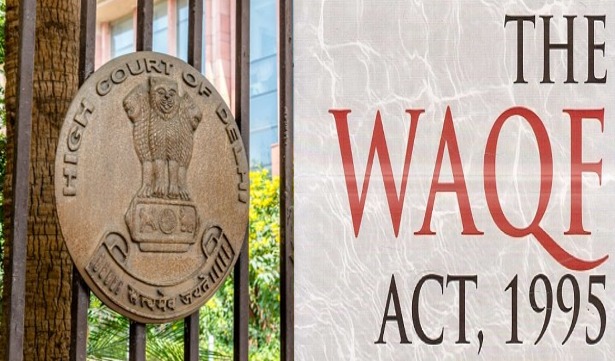
The Central government on Wednesday told the Delhi High Court that at least 120 pleas challenging the provisions of the Waqf Act, 1995 were pending before various High Courts throughout the country.
Kirtiman Singh, the Central Government Standing Counsel (CGSC), told the Court of this today and moved an application seeking further time to file a response to the petitions filed against the Waqf Act.
A bench consisting of Chief Justice Satish Chandra Sharma and Justice Sachin Datta asked the government counsel to take the necessary measures and acquire directions for the consolidation and transfer of all petitions to the Supreme Court.
The Court was hearing a slew of petitions contesting the Waqf Act’s provisions. Ashwini Upadhyay, a BJP politician, has filed one of these petitions.
The government stated in its application that because there are multiple cases pending around the country contesting one or more provisions of the Waqf Act, it is vital for it to take a reasoned and consistent stance.
“In light of the numerous petitions challenging various sections of the Waqf Act, 1995, it is critical for the Respondents/Applicants (Central government) to take a clear and consistent stance. This entails a thorough examination of petitions, consultation/vetting by Government Counsels, and discussions with other stakeholders, such as state governments,” the government submitted.
The matter will be heard by the High Court next on July 26, 2023.
In his petition, Upadhyay has argued that while the Waqf Act governs the management of waqf properties, there are no similar laws for adherents of Hinduism, Buddhism, Jainism, Sikhism, Judaism, Bahaism, Zoroastrianism, and Christianity.
As a result, it is “against the secularism, unity, and integrity of the nation,” the plea stated.
It added that the Waqf Board is made up of Muslim MLAs, MPs, IAS officers, town planners, advocates, and academics who are paid from the public exchequer, despite the fact that the Centre does not collect money from mosques or dargahs.
“On the other hand, States collect roughly one lakh crores from four lakh temples but there are no similar provisions for Hindus. As a result, the Act violates Article 27,” Upadhyay argued.
The petition further alleged that the Waqf Act has given Waqf boards unbridled power, and Waqf properties have been prioritized above other charitable religious organisations.




